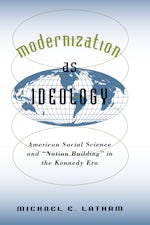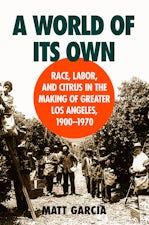Braceros
Migrant Citizens and Transnational Subjects in the Postwar United States and Mexico
By Deborah Cohen
360 pp., 6.125 x 9.25, 24 halftones, 1 maps, notes, bibl., index
-
Paperback ISBN: 978-1-4696-0974-4
Published: August 2013 -
E-book EPUB ISBN: 978-0-8078-9967-0
Published: February 2011 -
E-book PDF ISBN: 979-8-8908-8267-7
Published: February 2011
Buy this Book
- Paperback $37.50
- E-Book $24.99
For Professors:
Free E-Exam Copies
Awards & distinctions
2012 Theodore Saloutos Memorial Award in Agricultural History, Agricultural History Society
Finalist, 2012 David J. Weber-Clements Prize, Western History Association
Honorable Mention, CLR James Book Award, Working Class Studies Association
Published in association with the William P. Clements Center for Southwest Studies at Southern Methodist University in Dallas, Texas
About the Author
Deborah Cohen is associate professor of history at the University of Missouri-St. Louis.
For more information about Deborah Cohen, visit
the
Author
Page.
Reviews
"This is an important contribution to the history of relations between Mexico and the U.S. Recommended. Graduate students and above."--Choice
"Enlightening and thought provoking."--Journal of American History
"A wonderful read, one that might be assigned to graduate students or undergraduates in a wide range of classes. Any course that deals with the history of race, ethnicity, labor, or gender, in the United States or Mexico, will benefit from reading Cohen’s book."--American Historical Review
"These narratives are interesting and important to understand. . . . [Cohen] has found such a rich group of ethnographic to help her tell them."-- Journal of Historical Geography
"Cohen brings [braceros’s] actions to the forefront by allowing them to tell their stories in their own words, capturing the workers’ struggles and souls as they navigated the demands of the program. . . . The book encourages readers to consider migrants’ views of how their actions shaped immigration policies at the national and transnational level."--Western Historical Quarterly
"Cohen’s careful consideration of bracero subjectivities will enrich our understanding of the expansiveness of the mid-twentieth century Mexican immigrant experience."--New Mexico Historical Review



